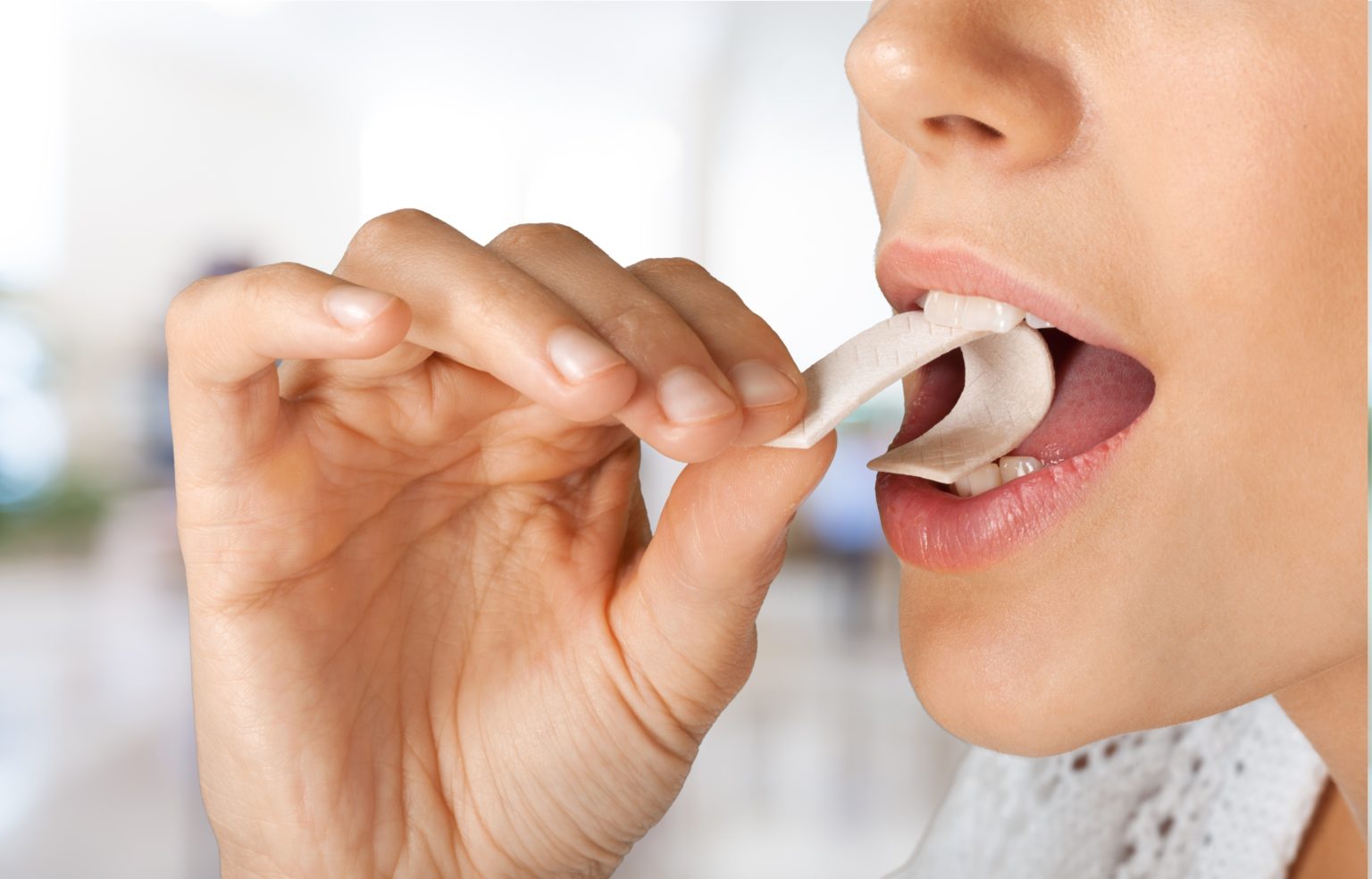
Jaw pain from chewing gum may put you at risk for developing a chronic TMJ disorder.
Chewing gum involves constant activation of the temporomandibular joint (TMJ) and can result in jaw muscle pain and soreness. But can chewing gum cause a TMJ disorder to develop? According to the medical literature, there does appear to be an association between chewing gum and temporomandibular disorders (TMDs).
Here we discuss jaw pain from chewing gum, what’s at risk, and what you can do about it.
The TMJ is the most active joint in the body, with the jaw muscles contracting over 2000 times over the course of a normal day. When you add gum chewing to this, that number can increase dramatically. The use of the TMJ muscles for reasons other than eating is called an oral parafunctional behavior. Examples of oral parafunctional behaviors include teeth grinding, nail biting, and gum chewing.
“Jaw pain from chewing gum is an important physical symptom. The body is informing you that something about the activity is activating pain pathways,” explains Bradley Eli, DMD, MS, an Orofacial Pain Specialist and expert in TMJ disorders.
The exact nature of the jaw pain and its contributing factors can vary from person to person. For instance, the jaw pain after chewing gum might be from jaw strain, muscle fatigue, joint instability, or arthritic changes to the joint. What’s important is if the jaw pain becomes persistent and manifests as pain with eating, talking, or even at rest.
Complex conditions like TMDs are multifactorial, meaning that they have many causes. For this reason, medical research often looks at risk factors and associations, rather than single causes. As for chewing gum and TMJ disorders, the medical research has established a link between oral parafunctional behaviors such as gum chewing and TMDs.
This association is particularly important when there is an awareness of pain from the underlying behavior (called “somatic awareness”). That is to say, if you are aware that chewing gum is causing pain, this fact puts you at an increased risk of developing chronic TMJ pain.
Chronic pain starts with the development of neural pathways primed from an initiating factor, no matter how small. In this case, awareness of jaw pain from gum chewing can act as a springboard for the development of neural pathways in the pain circuit that gradually become stronger. This process is called “pain amplification” and is articulated as a risk factor for developing TMDs in the OPPERA (Orofacial Pain Prospective Evaluation and Risk Assessment) study.
The first step is obvious; if you have jaw pain from chewing gum, stop chewing gum! But there is more that you can do to prevent the development of a chronic TMD. The principles to follow are the same as when you strain any other joint.
The Speed2Treat® Home Healing Kit was specifically designed to be used in cases of jaw strain. Don’t let your acute pain turn into a chronic condition.
Start your journey towards TMJ pain relief with the Home Healing Kit today!
